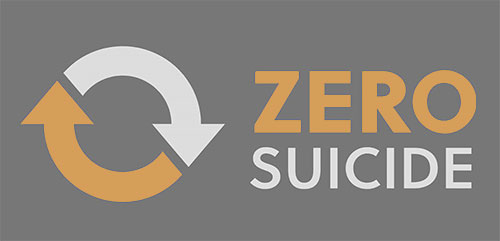
Zero Suicide is a way to improve suicide care within health and behavioral health systems.
The foundational belief of Zero Suicide is that suicide deaths for individuals under the care of health and behavioral health systems are preventable. For systems dedicated to improving patient safety, Zero Suicide presents an aspirational challenge and practical framework for system-wide transformation toward safer suicide care.
When it comes patient safety, the most fundamental responsibility of health care, the only acceptable number of losses due to errors in quality of care is zero. Zero Suicide applies that life-saving mindset to preventing suicide.
Zero Suicide models what it takes to make a system-wide, organizational commitment to safer suicide care. Zero Suicide is based on the realization that people experiencing suicidal thoughts and urges often fall through the cracks in a sometimes fragmented and distracted health care system. Studies have shown the vast majority of people who died by suicide saw a health care provider in the year prior to their deaths. There is an opportunity for health care systems to make a real difference by transforming how patients are screened and the care they receive.
Implementation of the Zero Suicide model requires transformative change that cannot be borne solely by the practitioners providing clinical care. Zero Suicide takes a system-wide approach to improve outcomes and close gaps. For health and behavioral health care systems, Zero Suicide represents a commitment to patient safety and a just culture of support for care providers.
The foundational belief of Zero Suicide is that suicide deaths for individuals under the care of health and behavioral health systems are preventable. For systems dedicated to improving patient safety, Zero Suicide presents an aspirational challenge and practical framework for system-wide transformation toward safer suicide care.
Zero Suicide transforms suicide care into seven elements: Lead, Train, Identify, Engage, Treat, Transition, and Improve. Together, the seven elements of safe and effective suicide care make up the Zero Suicide Framework. The seven elements of Zero Suicide represent what experts in the field of suicide prevention have identified as the core components of safe care for individuals with suicidal thoughts and urges. They represent a holistic approach to suicide prevention within health and behavioral health care systems. Click to learn more about Zero Suicide Framework
Additional Resources:
Zero Suicide Institute
Question, Persuade, Refer (QPR) Institute
Counseling on Access to Lethal Means (CALM)
Below is a list of all the counties who have signed the pledge:





